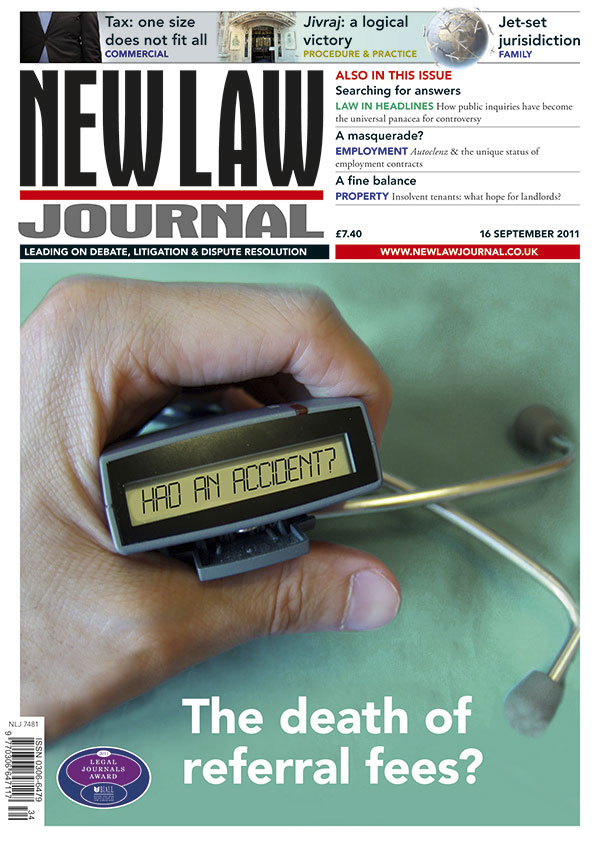
Dominic Regan welcomes the government’s u-turn on referral fees
Charles Brasted explains how public inquiries have become the universal panacea for controversy
Spencer Keen explores Autoclenz & the unique status of employment contracts
English courts have clarified the habitual residence rule for divorce petitions, observes Holly Sautelle-Smith
How are the interests of insolvent tenants balanced with those of their landlords, asks Christopher Warenius
Peter Vaines reports on the inevitable failure of HMRC’s revised litigation strategy
Eleanor Kelly charts the rise of opposition to directors’ remuneration
Ned Beale & Hannah Shribman welcome the Supreme Court’s move to exclude arbitration agreements from anti-discrimination legislation
R (on the application of Castle and others) v Commissioner of Police for the Metropolis [2011] EWHC 2317 (Admin), [2011] All ER (D) 34 (Sep)
Deborah Blaxell highlights the importance of making the correct e-disclosure technology choices
MOVERS & SHAKERS

NLJ Career Profile: Ken Fowlie, Stowe Family Law
Ken Fowlie, chairman of Stowe Family Law, reflects on more than 30 years in legal services after ‘falling into law’

Jackson Lees Group—Jannina Barker, Laura Beattie & Catherine McCrindle
Firm promotes senior associate and team leader as wills, trusts and probate team expands

Asserson—Michael Francos-Downs
Manchester real estate finance practice welcomes legal director







